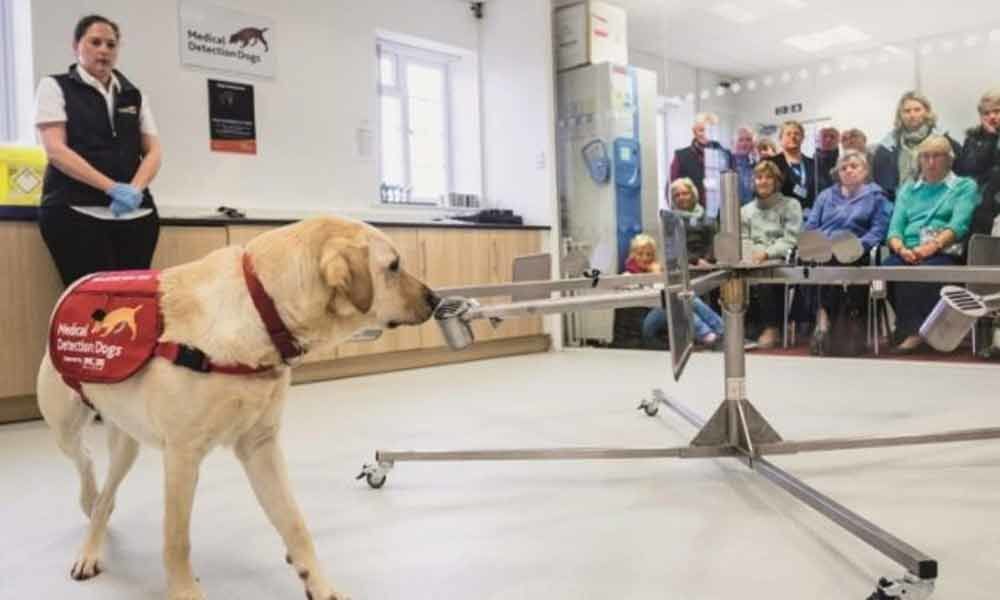Live
- Youth must take up farming, allied activities: Dhankhar
- Blankets, fruits distributed to mark Vajpayee’s birth anniv
- Hyderabad: Techie turns traffic volunteer, promotes road safety
- Visakha Dairy head Adari Anand joins BJP
- Christmas celebrated with religious fervour
- Christmas celebrated with gaiety
- Unity, charity, fervour at X’mas fete
- Ambedkar's vision for country neglected by Congress: Modi
- Water released from Koilsagar project
- A B Vajpayee statue works get underway
Just In

Your canine friend can use its highly evolved sense of smell to pick out blood samples from people with cancer with almost 97 per cent accuracy, a finding that can lead to new low-cost and non-invasive screening approaches for the disease, finds a study.
New York, April 9: Your canine friend can use its highly evolved sense of smell to pick out blood samples from people with cancer with almost 97 per cent accuracy, a finding that can lead to new low-cost and non-invasive screening approaches for the disease, finds a study.
Dogs have smell receptors 10,000 times more accurate than humans', making them highly sensitive to odours we can not perceive.
"Although there is no cure for cancer, early detection offers the best hope," said lead researcher Heather Junqueira, at BioScentDx, a US-based healthcare company. "A highly sensitive test for detecting cancer could save thousands of lives and change the way the disease is treated," he said.
For the study, the team used a form of clicker training to teach four beagles to distinguish between normal blood serum and samples from patients with malignant lung cancer.
Although one beagle -- aptly named Snuggles -- was unmotivated to perform, the other three correctly identified lung cancer samples 96.7 per cent times and normal samples 97.5 per cent times.
"This work is very exciting because it paves the way for further research along two paths, both of which could lead to new cancer-detection tools," said Junqueira.
"One is using canine scent detection as a screening method for cancers, and the other would be to determine the biologic compounds the dogs detect and then design cancer-screening tests based on those compounds," he said.
The results will be presented at the American Society for Biochemistry and Molecular Biology annual meeting in Florida. The team plans to use canine scent detection to develop a non-invasive way of screening for cancer and other life-threatening diseases.

© 2024 Hyderabad Media House Limited/The Hans India. All rights reserved. Powered by hocalwire.com







